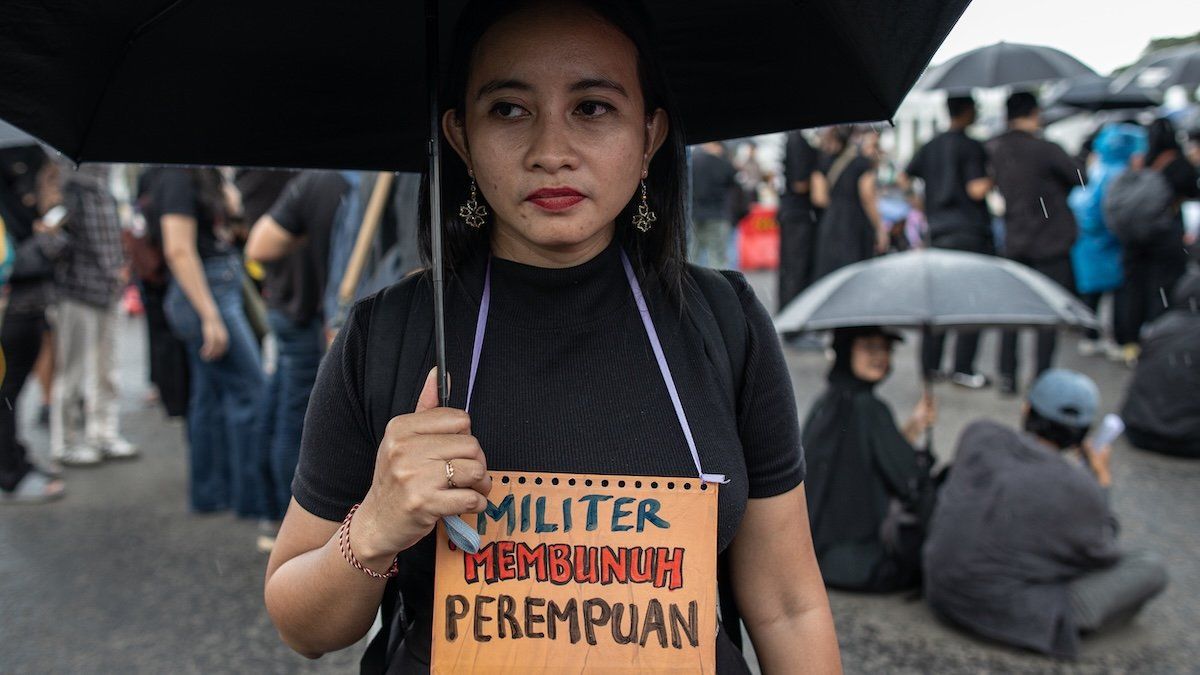Indonesian activists are protesting a new law allowing active-duty military members to serve an expanded role in the civilian government — a move they warn could bring back the days of military repression under strongman leader Suharto.
Indonesia’s current president, Prabowo Subianto Djojohadikusumo, is a former general who served as minister of defense under former President Joko Widodo. He is accused of serious human rights abuses, including participation in massacres in East Timor and forced disappearances of pro-democracy activists.
In power since October, Prabowo has already worked to integrate the military deeper into governance. Amendments to the 2004 Law on the Indonesian Armed Forces, which parliament passed unanimously on Thursday, allow active duty military officers to hold positions in 14 different government institutions. Previously, they were only allowed to serve in institutions related to defense and national security, but now they’ll be able to serve in institutions like the attorney general’s office and the Supreme Court.
Prabowo’s election last year raised concerns about democratic backsliding in the country. But Indonesians have responded to the latest move: Hundreds went to the parliament building on Thursday to protest the new legislation and to demand that the military and civilian government remain separate.
